As the presidential election nears, young voters are preparing to head to the polls and make their voices heard on Nov. 5.
In recent months, student protests over the war in Gaza have erupted on college campuses. At St. Edward’s University, student protests over the administration’s decision to remove a Progress Pride Flag last year led to its reinstatement and an apology from university President Montserrat Fuentes. Now, some students are preparing to cast their ballots in the presidential race.
Ivan Masterson, a junior Theater Arts major, cast his ballot on Oct. 21, the first day of early voting — and for his first time in a presidential election. This year, early voting goes until Nov. 1. He named health care for queer and trans people as an important issue, saying he fears that, “under Trump’s presidency all of that is going to go away.”
“I think there’s a lot at stake with this election, so I just want to make my impact and do my part,” Masterson said. “I think that depending on the results, a lot of people’s rights could go away. I think keeping those is what’s important right now.”
A Pew Research Center study entitled “Behind Biden’s 2020 Victory” shows that young adults from ages 18- 30 represented 15% of all Biden’s voters. Student engagement increased from 52% in 2016 to 66% four years later.
St. Edward’s encourages student engagement in a number of ways. An Oct. 22 email sent to all Hilltoppers included a voting guide and information about how to register to vote. Polling stations will be accessible on campus in the Alumni Gym from 7 a.m. to 7 p.m. on election day for students registered in Travis County.
“St. Edward’s has done a really good job of encouraging the students in the community to vote,” Magnolia Westfall, a senior Communication major, said. “And it’s not just for this election, it’s also for upcoming elections. They launched a whole initiative called Toppers Vote, which will stay up long after this election. I think it’s a great tool for people who want to get involved but don’t necessarily know the right way to go about doing it.”
The Kozmetsky Center, which provides a forum for discussing current affairs and increasing civic engagement, is hosting on-campus discussions and panels. At these events, students explore questions about elections, the future of democracy and the promotion of voting. Their latest event, “Voting Rights in Texas,” happening today (Oct. 29) from 11:30 to 1 p.m. will address whether voting rights are being secured or restricted in Texas.
Many students, like Westfall and Masterson, have already voted in smaller elections before, but will be casting their first ballot for the presidential election. Beyond feeling ecstatic, Westfall said she believes voting is a civic duty as well as a privilege, and a way of being heard.
“If Harris gets elected, it opens up a lot of doors that have been closed since the beginning of this country,” Westfall said. “Even if the doors get cracked a little bit for Kamala to step into position, that is just the first domino being knocked over, with women stepping into a position of more equality.”
For some students voting for the first time, the presidential election represents a big leap forward. This is the case for Jake McDonald, a freshman Theater Arts major who said he feels both motivated and overwhelmed by the election. He finds it hard to form his own opinion among the different points of view and guidance he receives. Nevertheless, McDonald still acknowledges how politics can affect a person’s life for the next four years.
“Our teacher would always tell us to vote when we are able to, because not too many people our age usually vote, so it helps bring that percentage up,” McDonald said. “I know it’s super important to be educated on everything before making your vote because of how important and heavy voting is – and that’s kind of what makes me nervous about voting. I don’t feel I deserve to vote because of how uneducated I am.”
Students said they are following the election on social media, which is becoming a primary source for a large number of people – and playing a crucial role in shaping their opinions. Politicians started using more and more social media platforms as campaign tools to connect with their voters, such as @kamalaHQ or @realdonaldtrump.
“I get a lot of my information from TikTok,” McDonald said. “There are team Trump and team Kamala accounts, both going against each other. That’s how I figured out a third-party candidate was running, Robert F. Kennedy, Jr, and I never knew who (he was) until I found (him) on TikTok — and that’s who I was thinking about voting (for). I know lots of people say ‘Oh, voting for (third-party candidates) is just throwing away your vote,’ but the more people that actually do vote for the third-party candidate, the more it takes away from the two big sides.”
An election night party will be held in the St. Andre Hall multi-purpose room on Nov. 5 from 6-11 p.m. Organized by students in the Kozmetsky Center’s Civics Lab, it will feature presentations, expert commentary, free pizza and plenty of activities throughout the night, as election results come in from across the country.


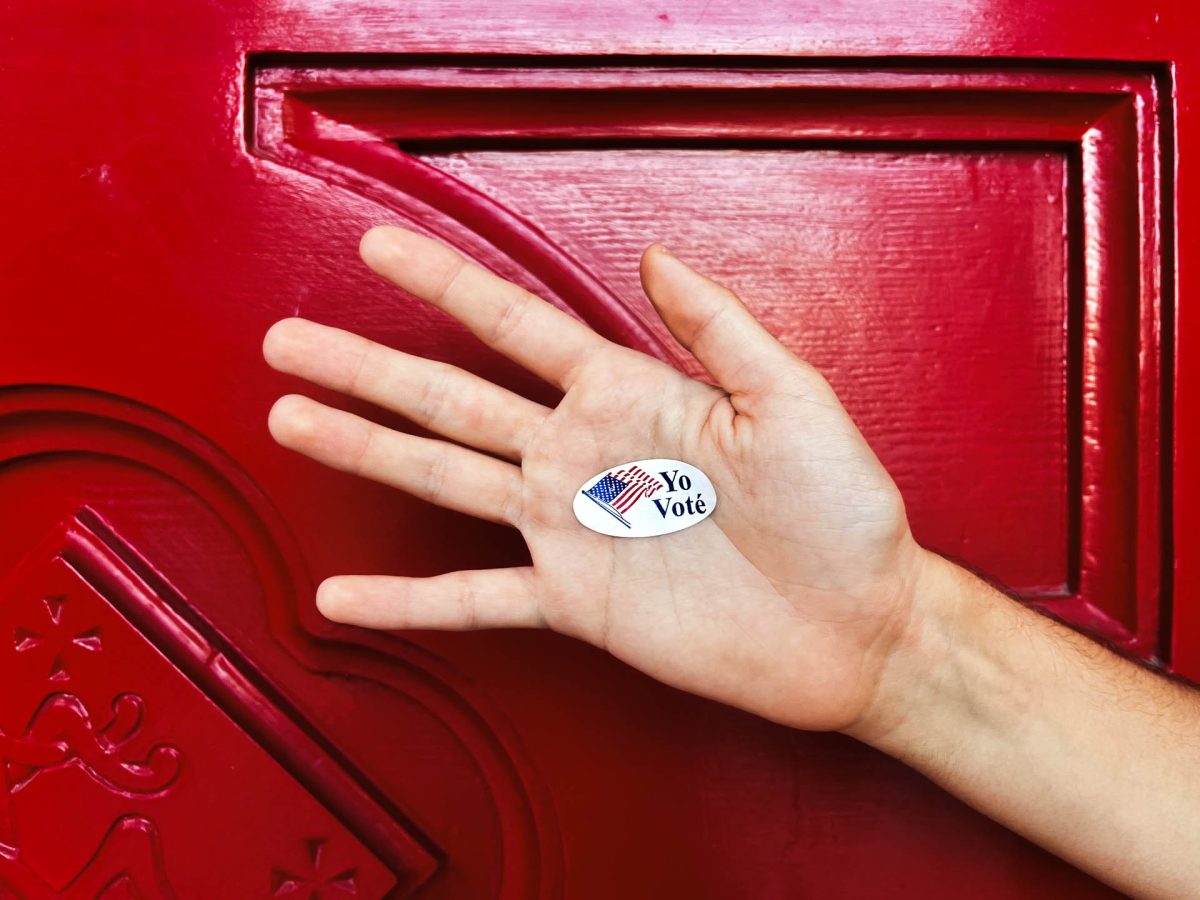
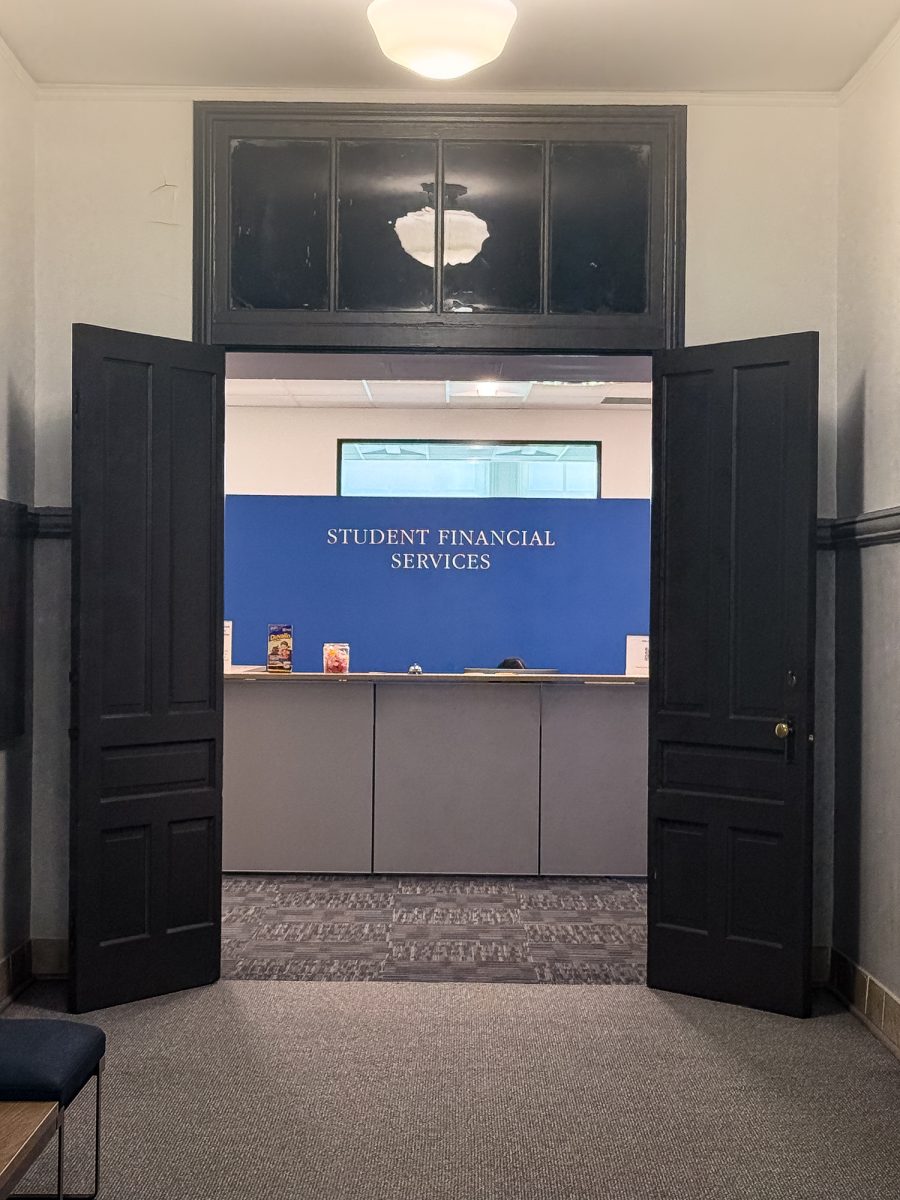
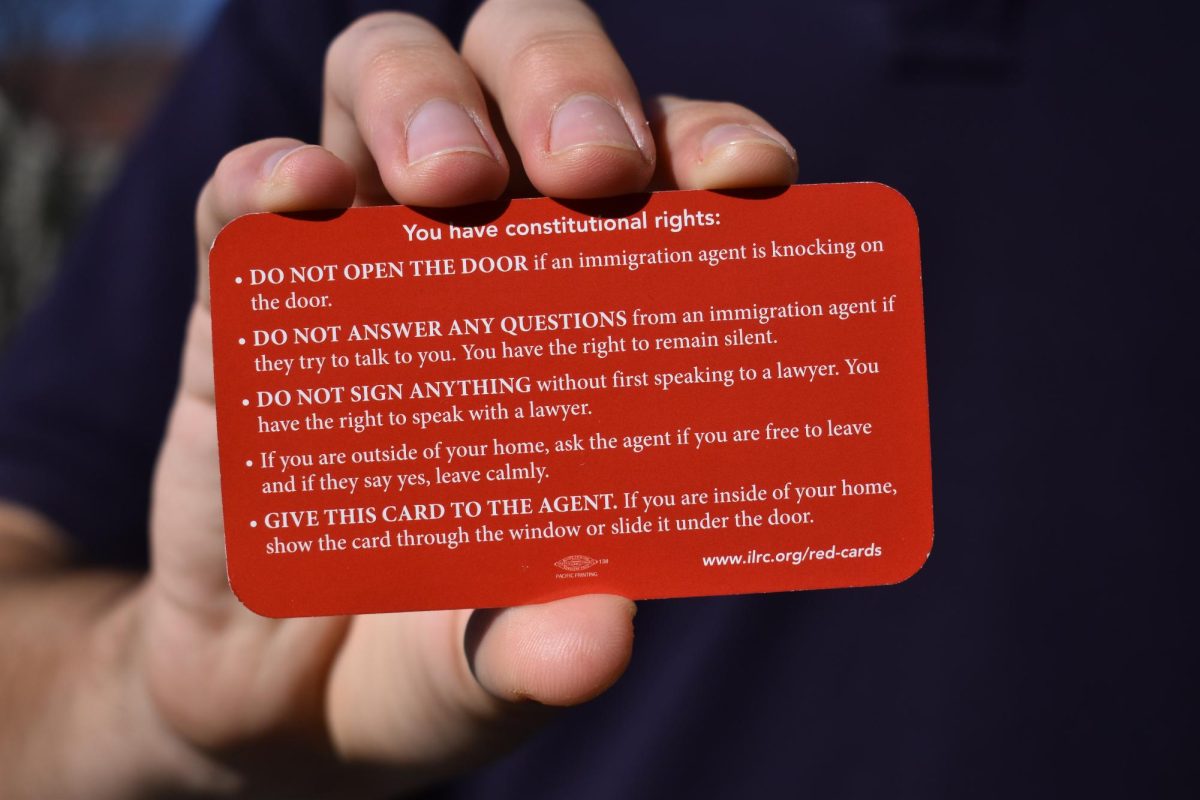
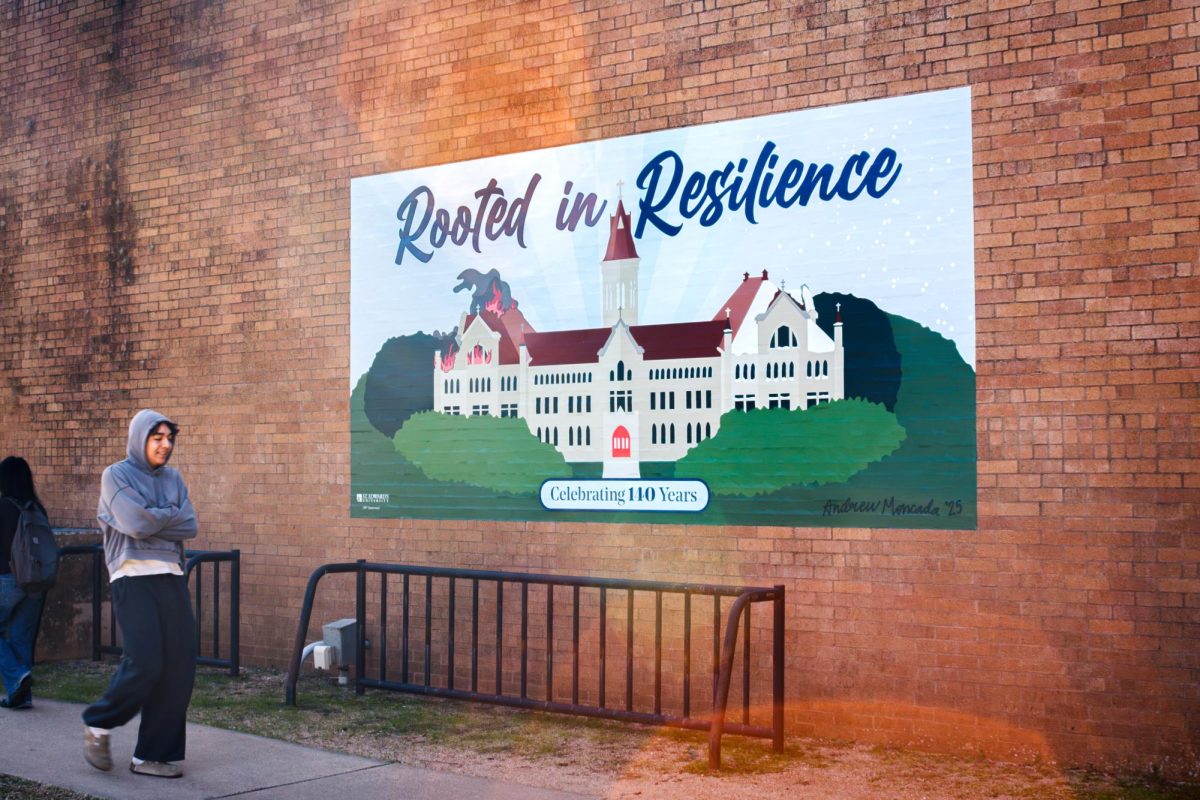
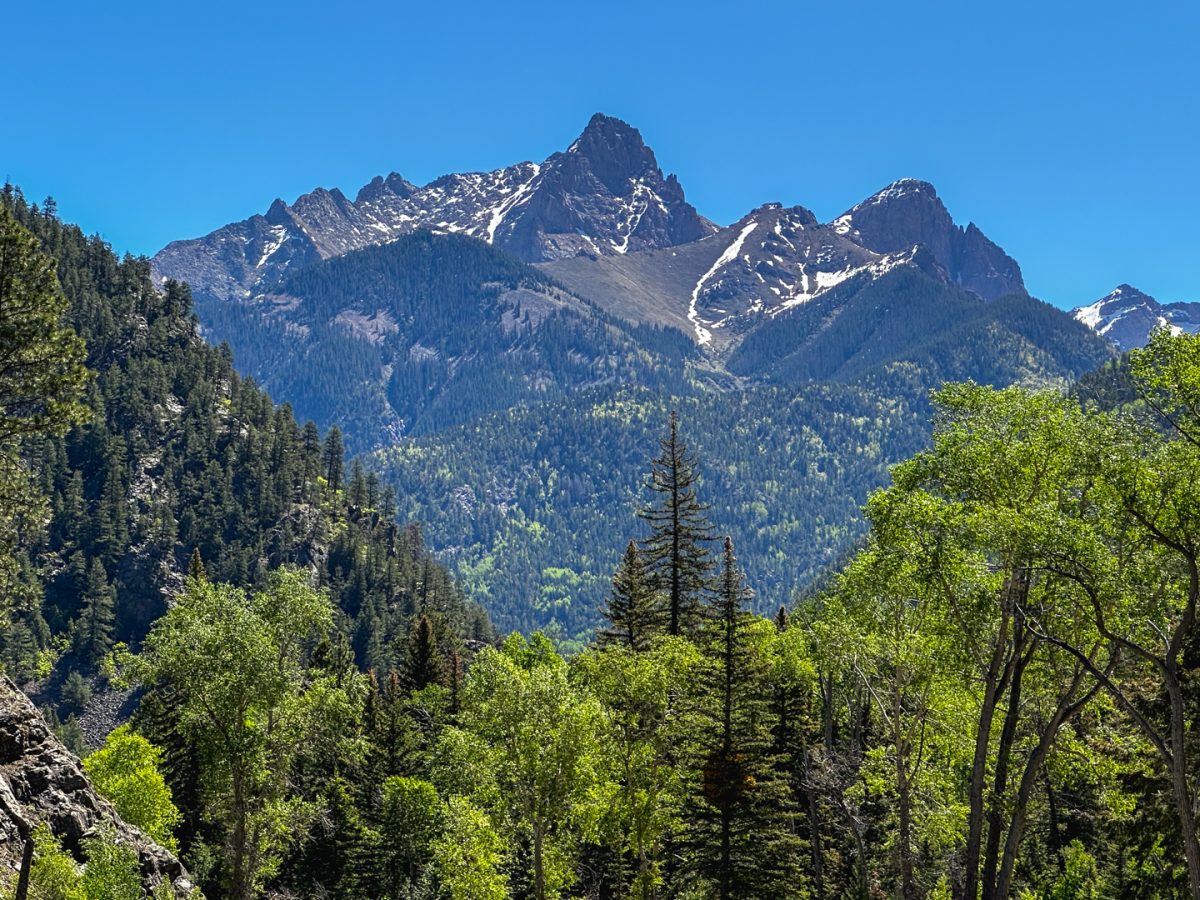
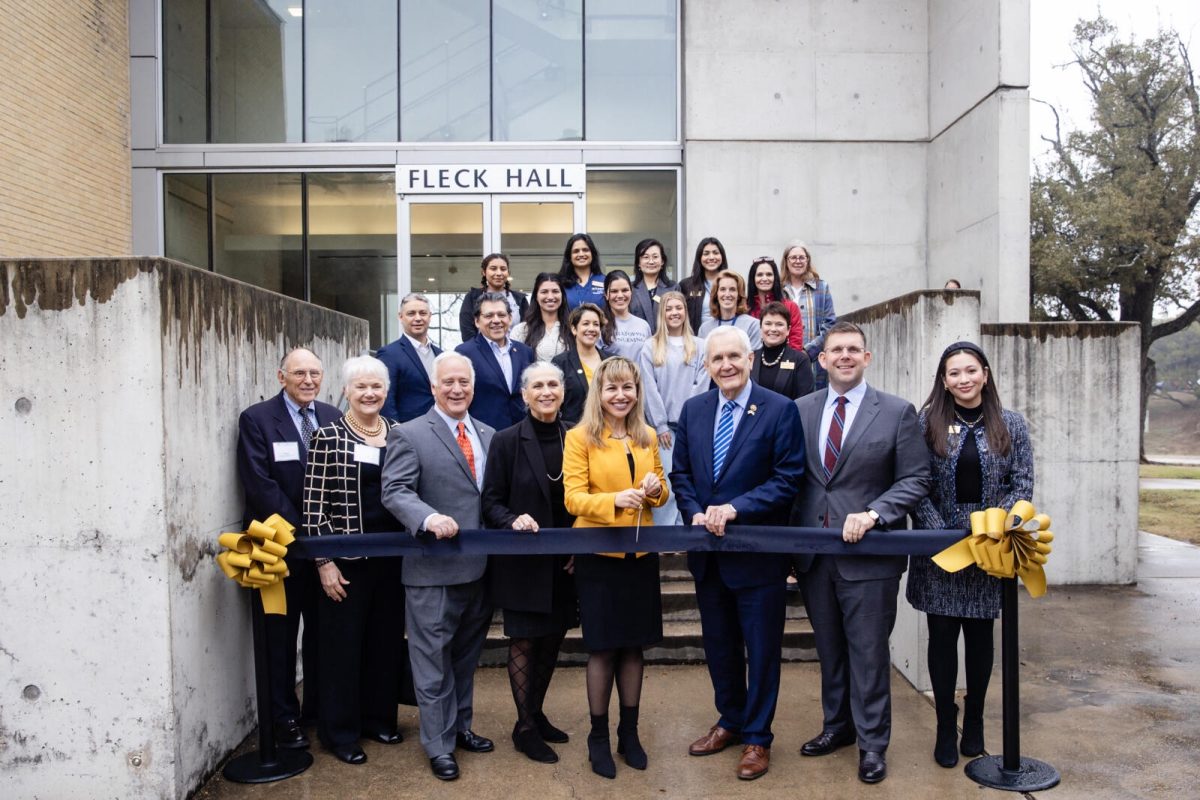
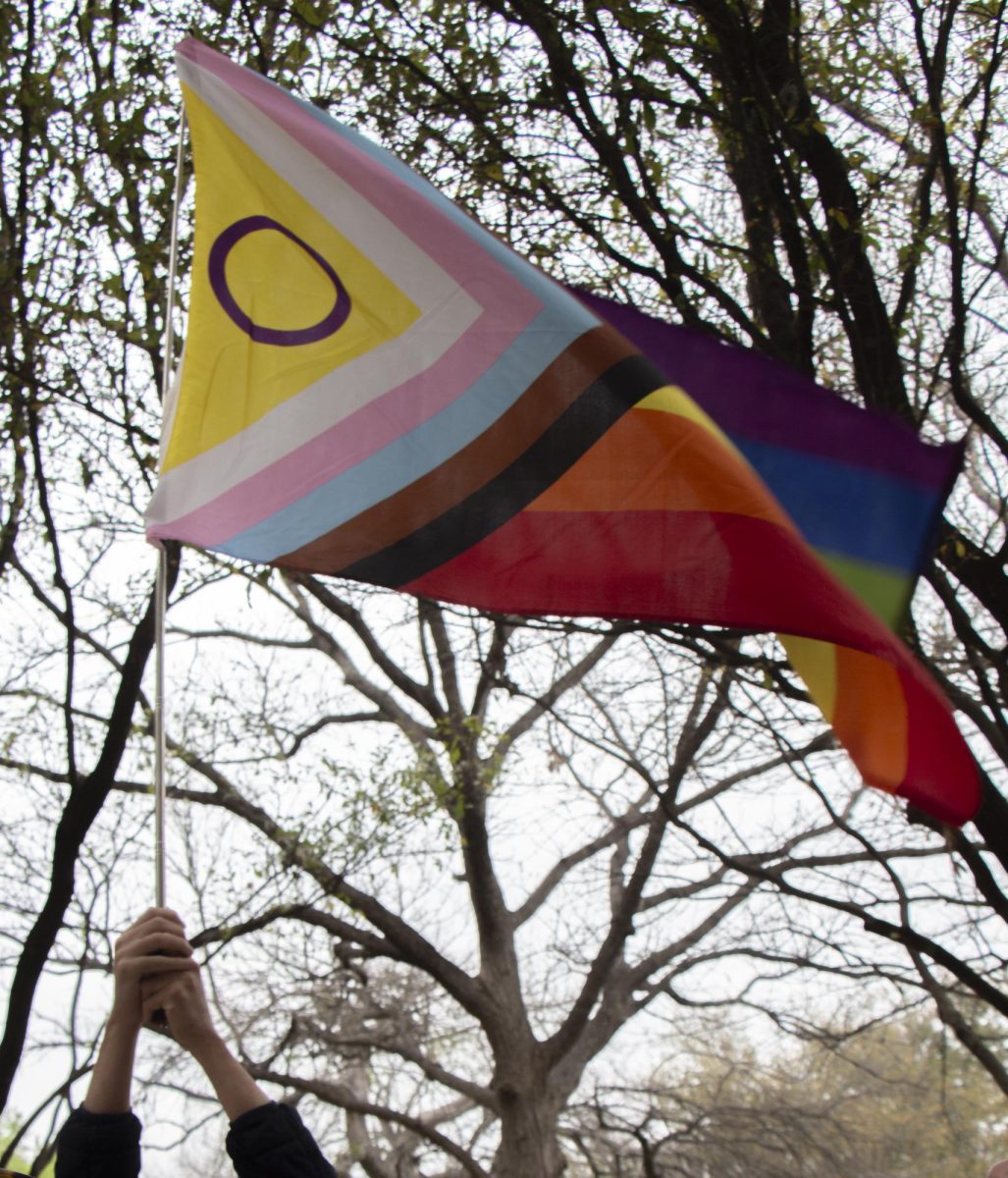
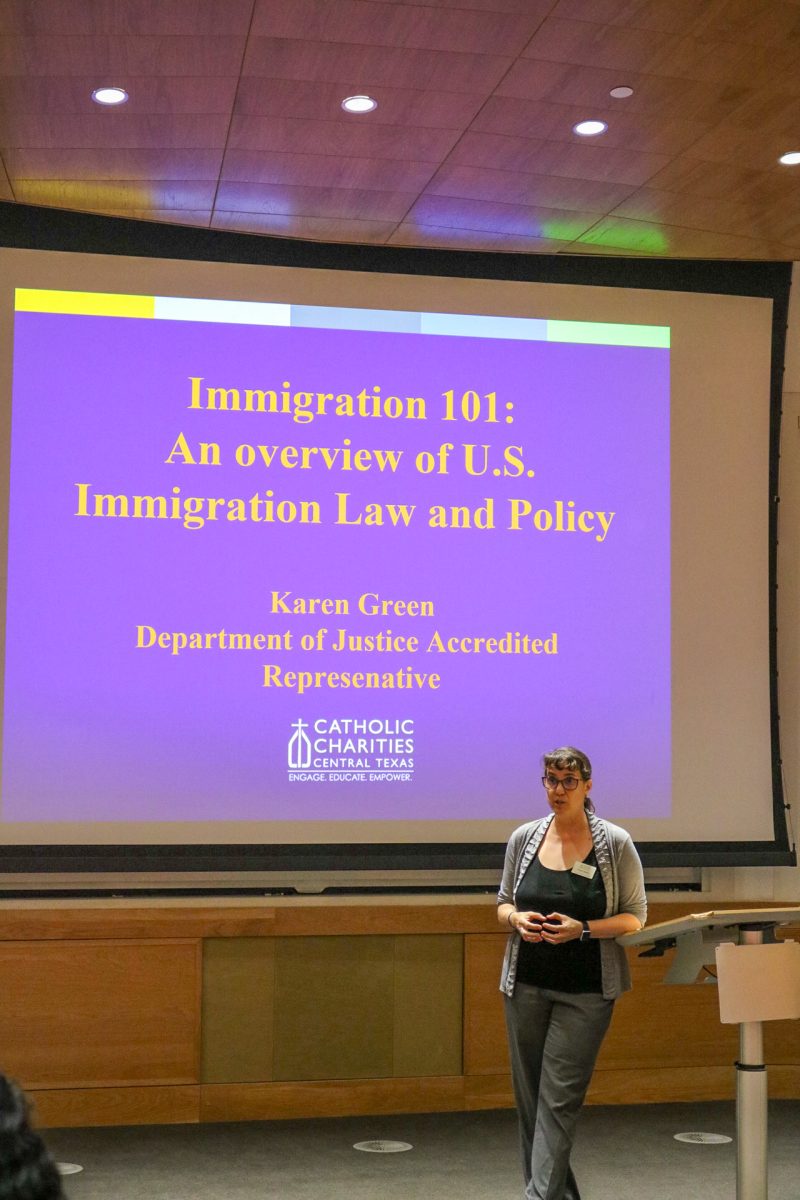
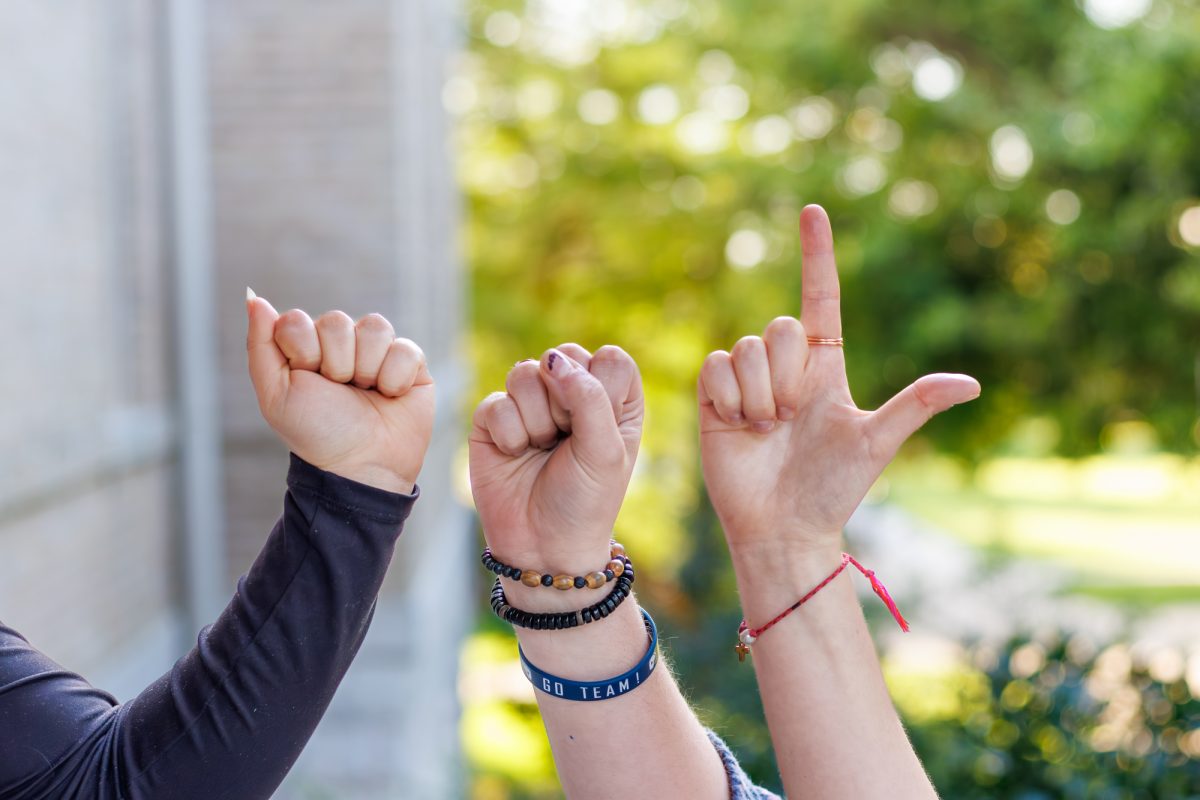
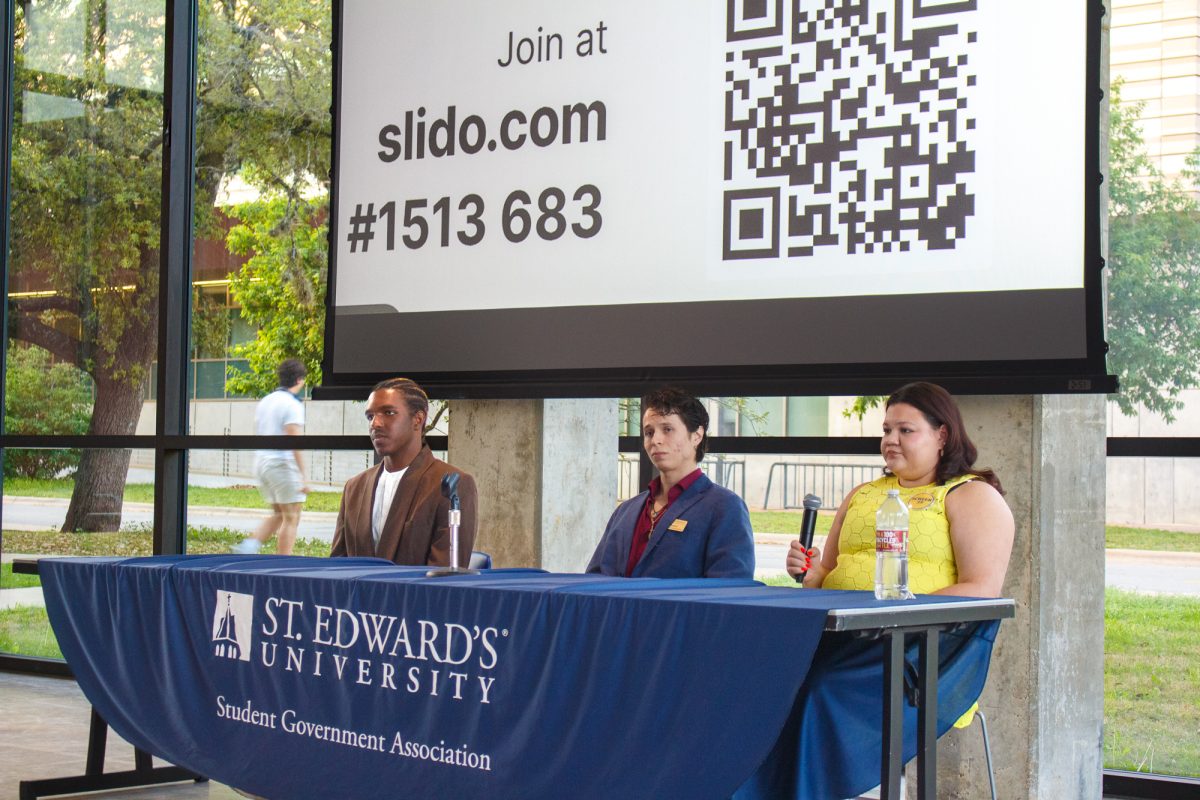
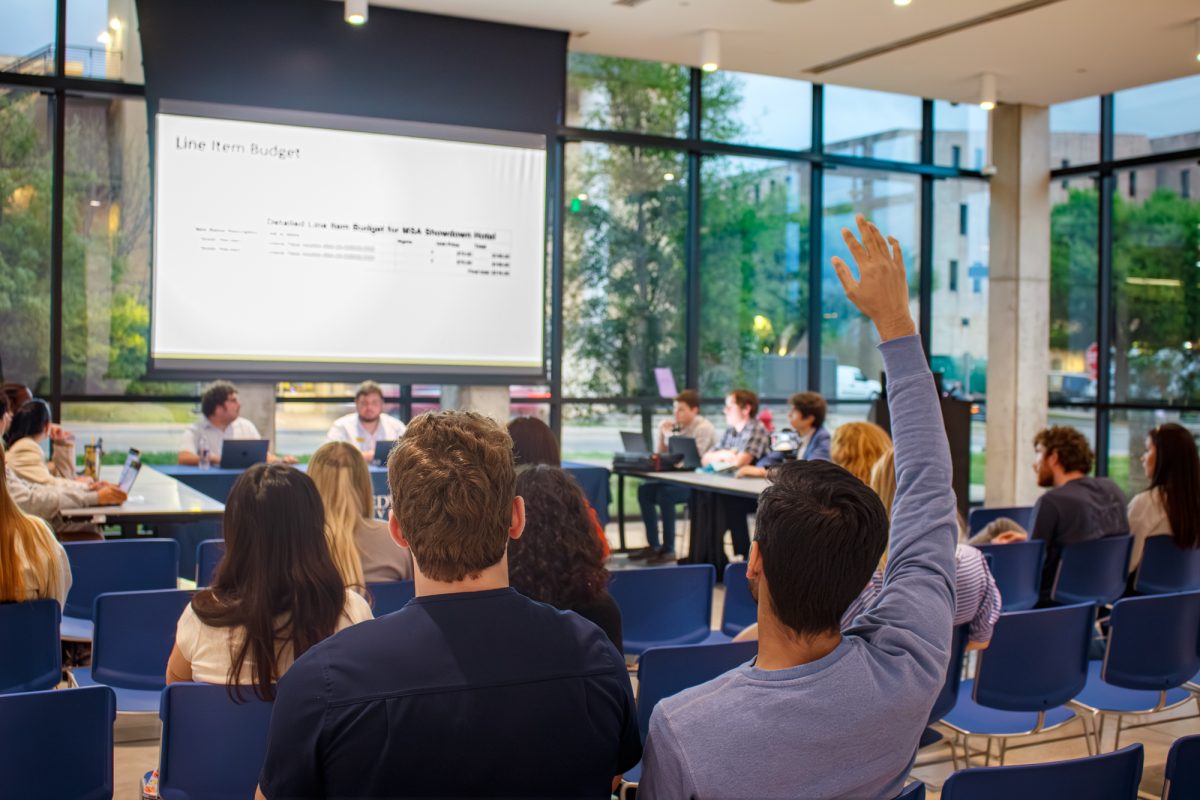
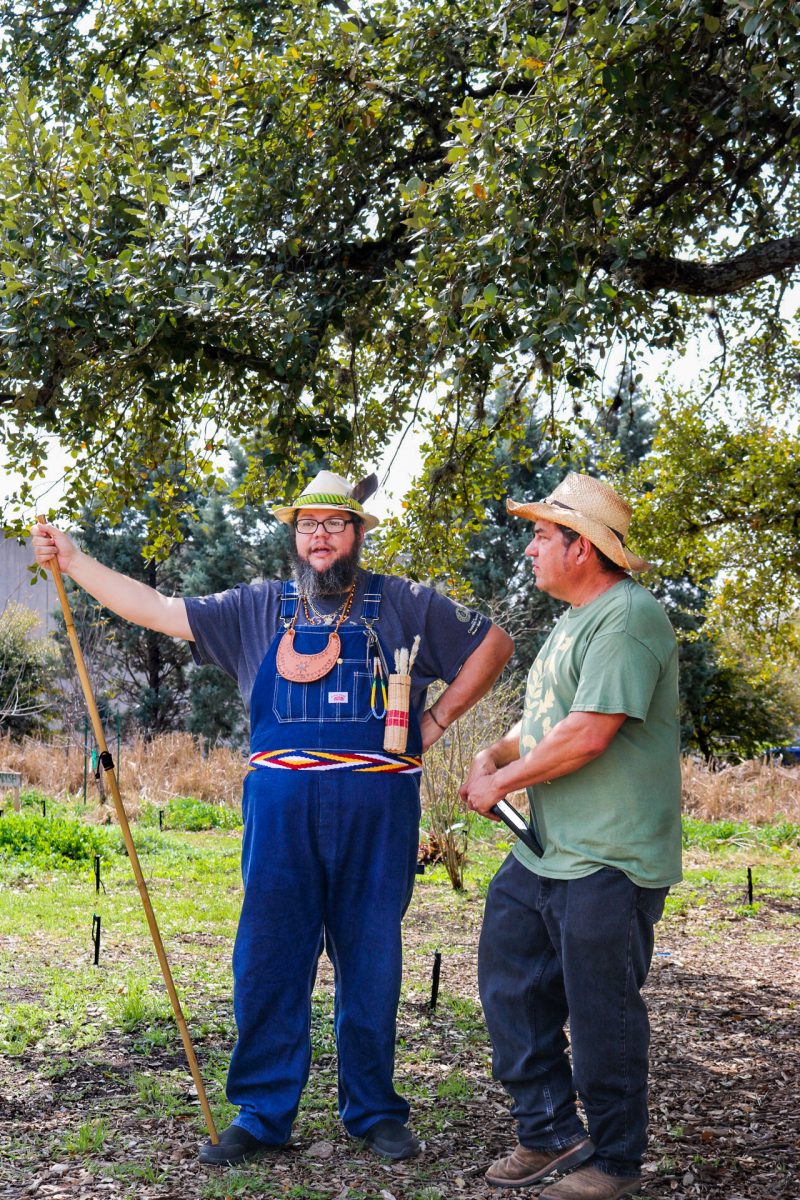
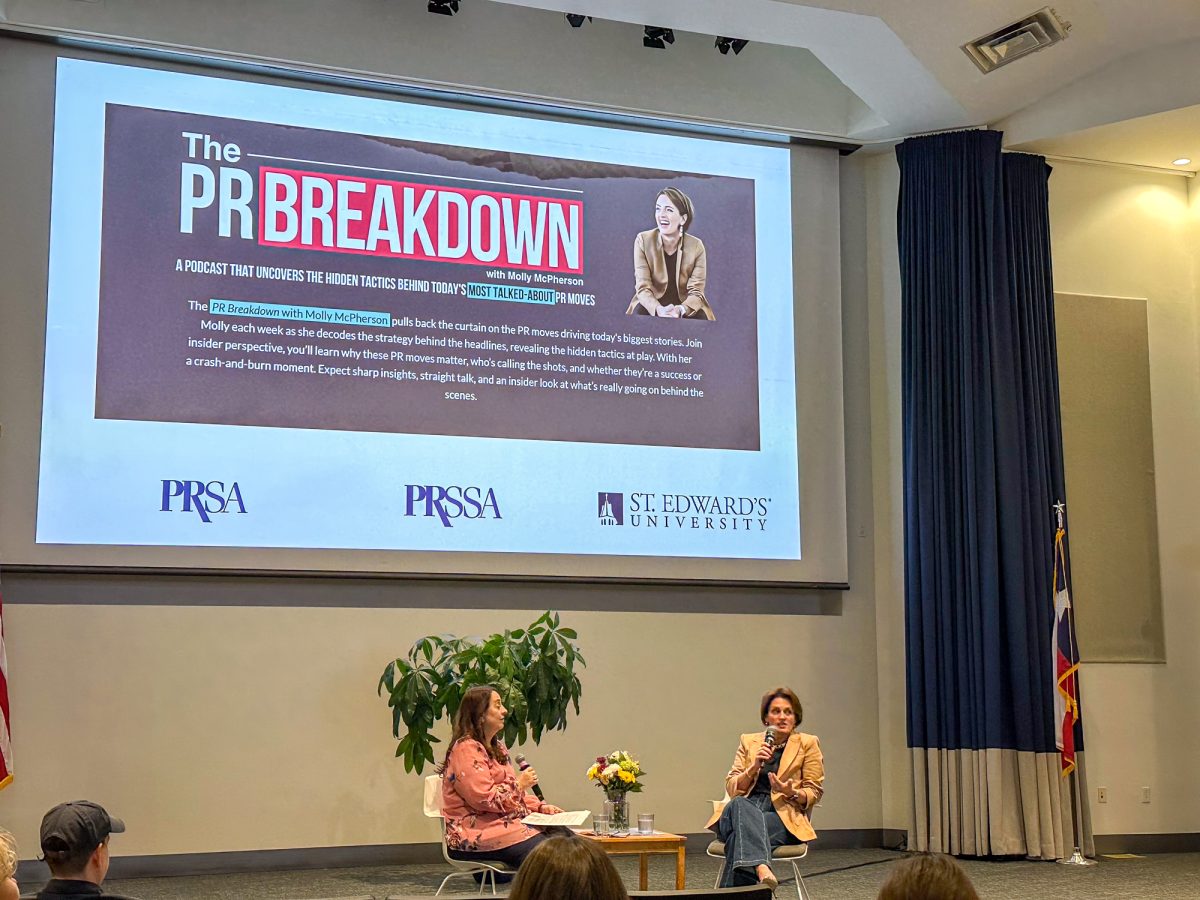
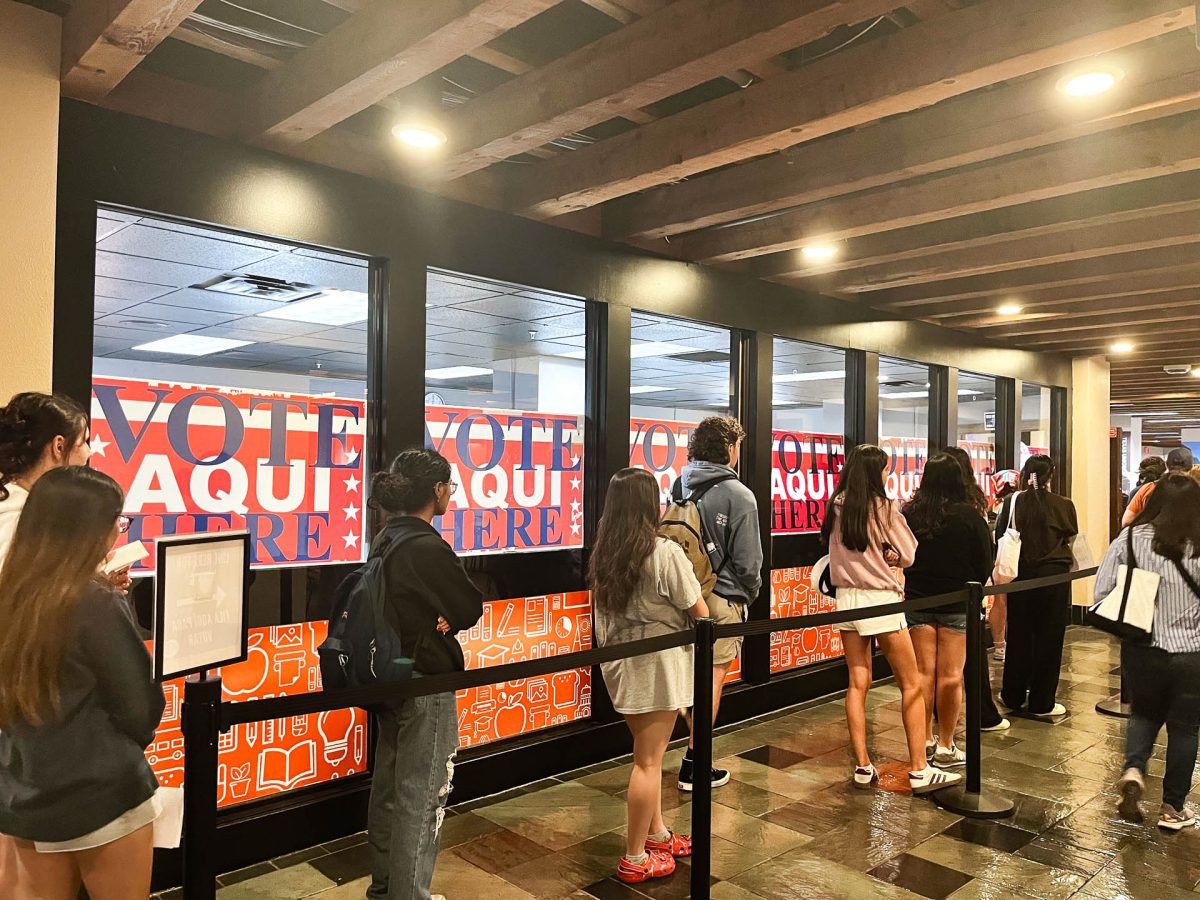
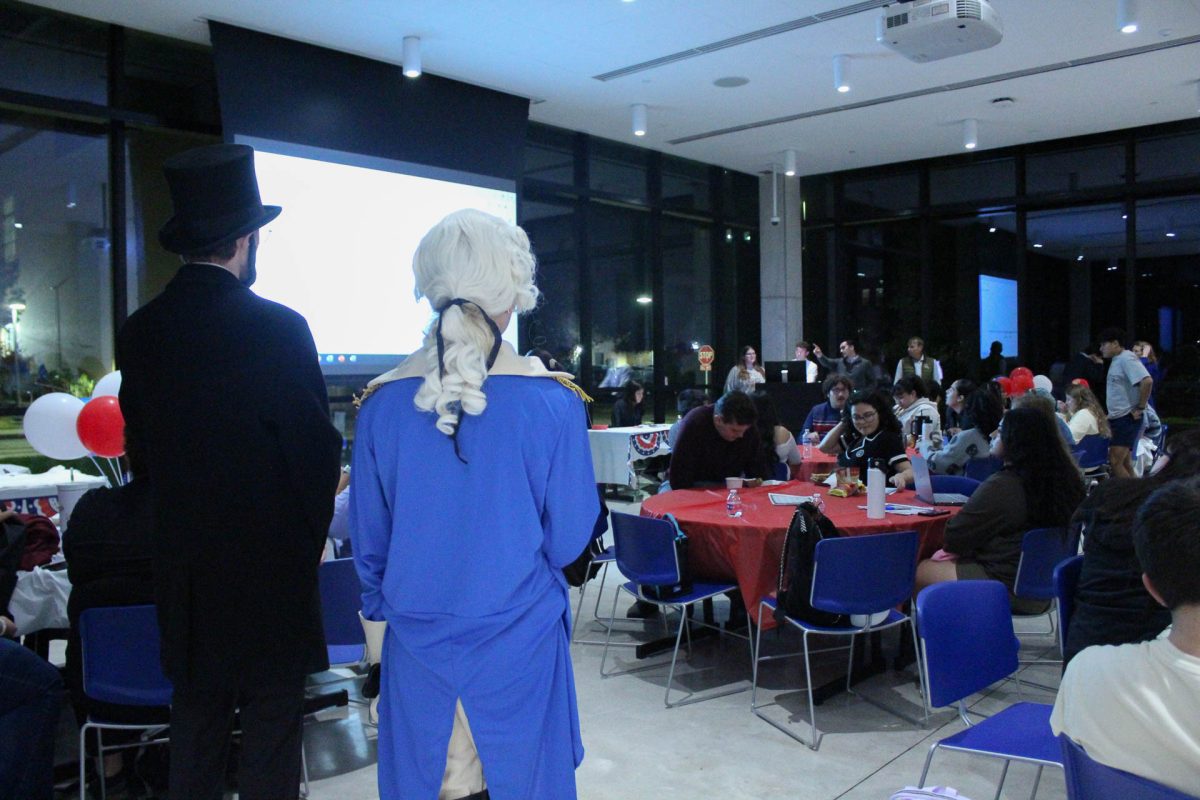
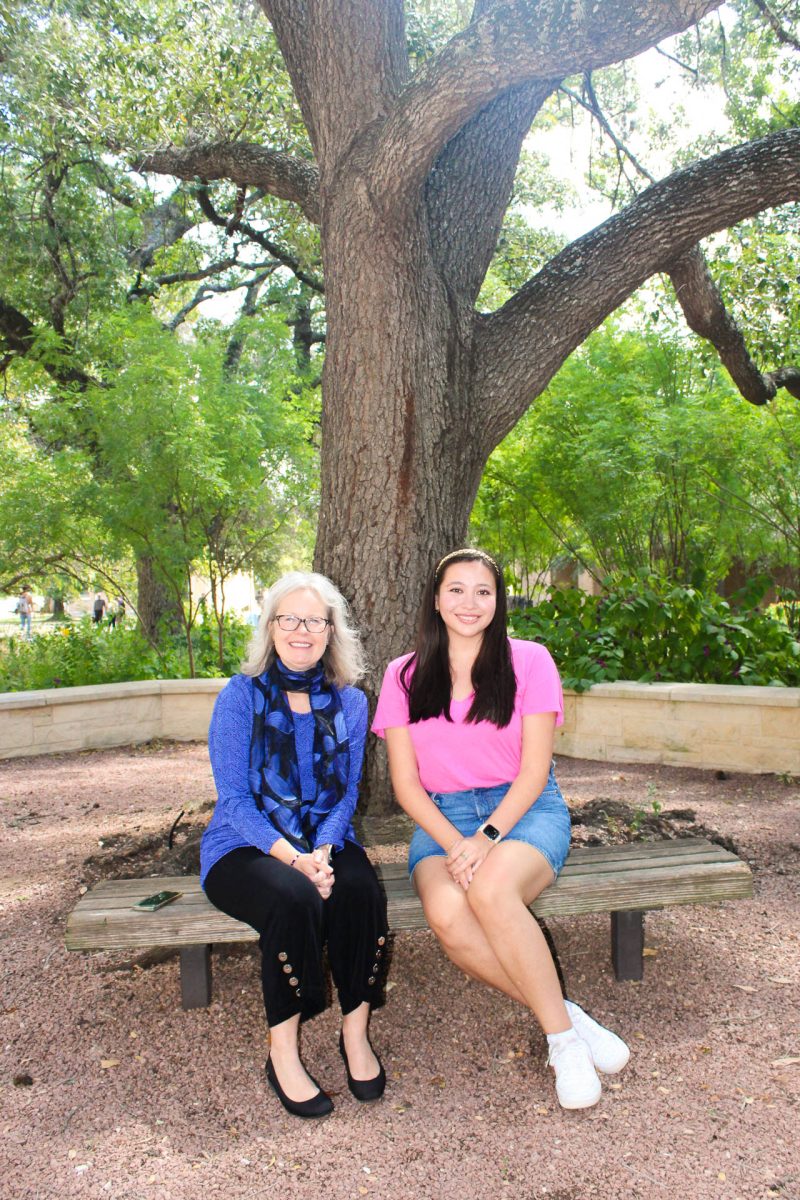
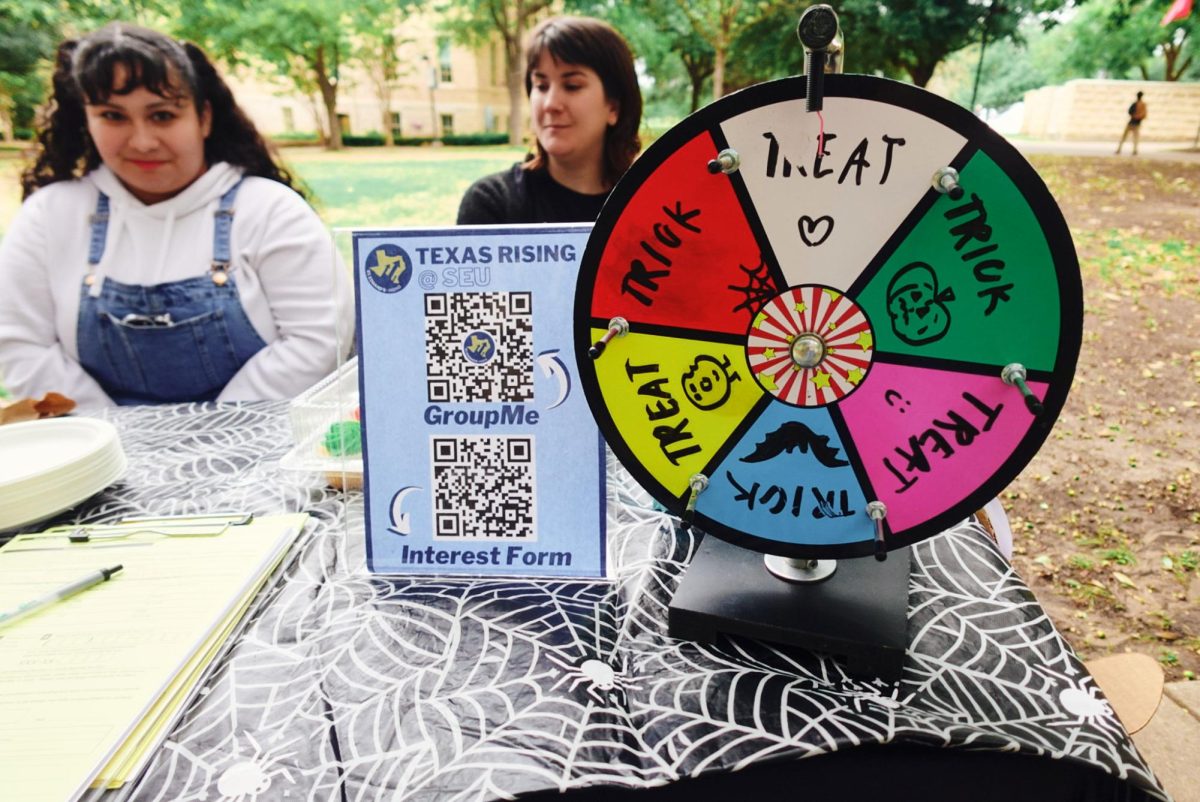
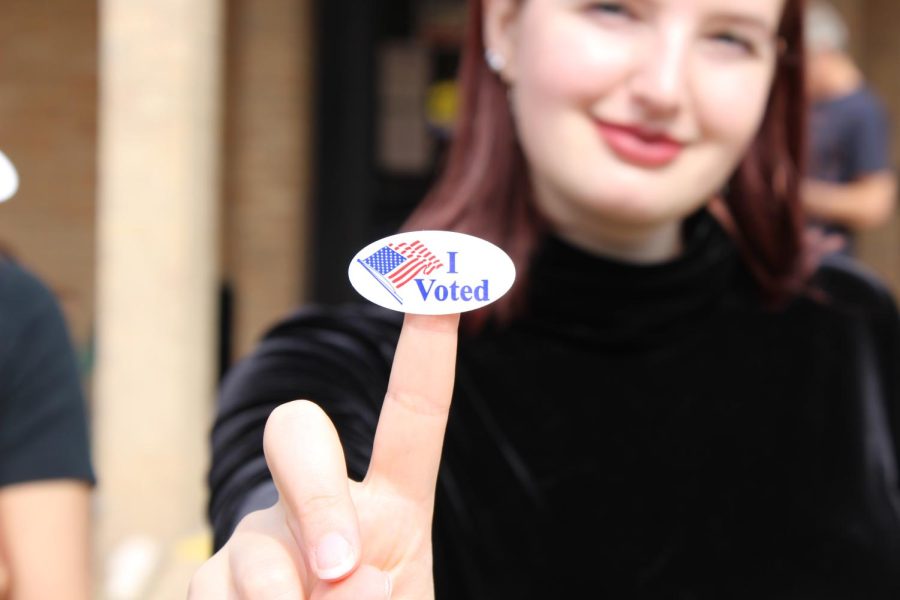
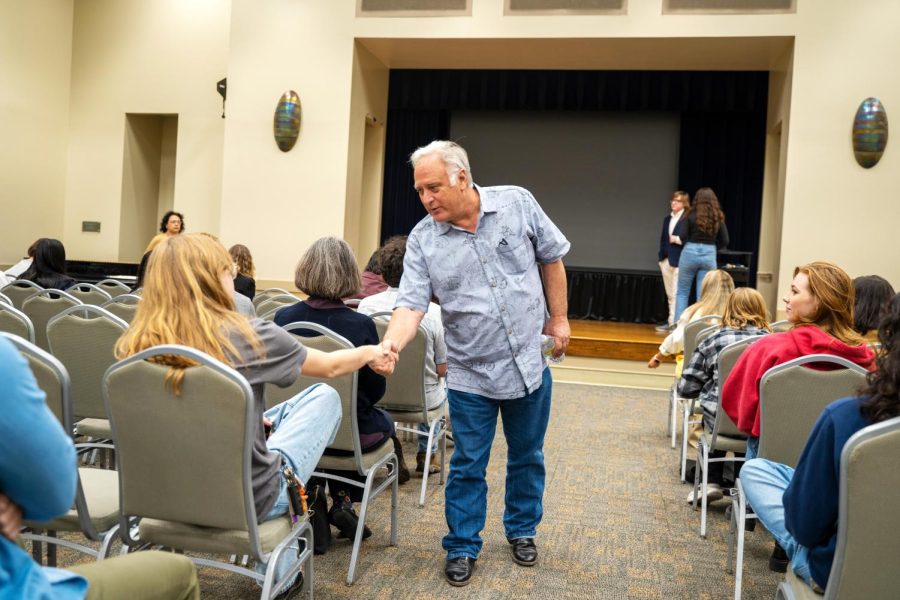
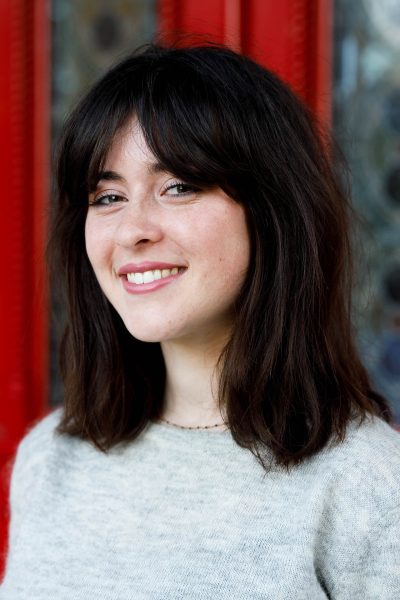
Castex Denise • Oct 30, 2024 at 8:01 am
Beautiful article Gaby on the need for young people to be involved in elections, and especially for this major election that is the presidential.
Youth is our future and it is the youth that, I hope, will ensure democracy and freedom in many countries.
See you soon.
Jena Heath • Oct 29, 2024 at 11:03 am
Good story. Looking forward to more coverage of this incredibly consequential election!